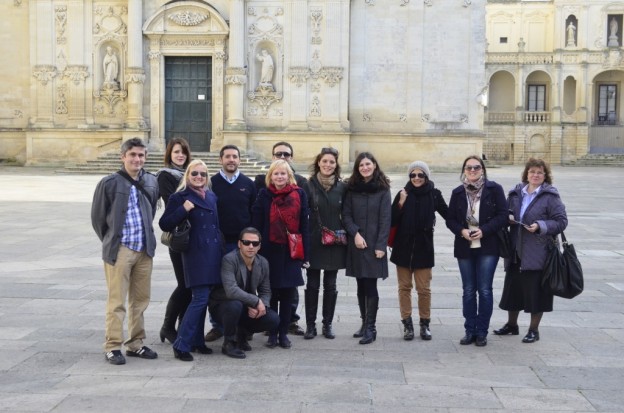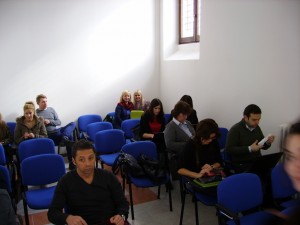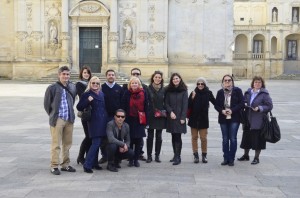This February I participated in the workshop „FREE DIGITAL LITERACY. Using Open Source and free technologies to encourage digital literacy”. This workshop is created within the framework of Lifelong Learning/Grundtvig programme
The workshop is about the issue of computer literacy with reference to development models Open Source oriented, designed as a means to disseminate human knowledge and prepare learners to be active members of their community. The aim of the project is to expand the knowledge of the students, offering them methodologies and teaching techniques.
Of course, I was not alone in this project. ![]() There were about 20 persons from different parts of Europe – Italy, Spain, Romania, Greece, Latvia and Turkey.
There were about 20 persons from different parts of Europe – Italy, Spain, Romania, Greece, Latvia and Turkey.
During this project I learned a lot not only about Free Software and some of them I want to try for myself. It are WordPress, Wikis and Moodle.
I would like little bit introduce with some of it:
WordPress is a free and open source blogging tool and a content management system (CMS) based on PHP and MySQL, which runs on a web hosting service. Features include a plug-in architecture and a template system. WordPress is the most popular blogging system in use on the Web, at more than 60 million websites
Wiki is „The simplest online database that could possibly work”.Wiki is a piece of server software that allows users to freely create and edit Web page content using any Web browser.
Wiki supports hyperlinks and has a simple text syntax for creating new pages and crosslinks between internal pages on the fly. Wiki is unusual among group communication mechanisms in that it allows the organization of contributions to be edited in addition to the content itself. Like many simple concepts, “open editing” has some profound and subtle effects on Wiki usage. Allowing everyday users to create and edit any page in a Web site is exciting in that it encourages democratic use of the Web and promotes content composition by nontechnical users. [http://wiki.org/wiki.cgi?WhatIsWiki]
Moodle (acronym for Modular Object-Oriented Dynamic Learning Environment) is a free software e-learning platform, also known as a Learning Management System, or Virtual Learning Environment (VLE). As of June 2013 it had a user base of 83,008 registered and verified sites, serving 70,696,570 users in 7.5+ million courses with 1.2+ million teachers.
Moodle was originally developed by Martin Dougiamas to help educators create online courses with a focus on interaction and collaborative construction of content, and is in continual evolution. The first version of Moodle was released on 20 August 2002. [http://en.wikipedia.org/wiki/Moodle]



